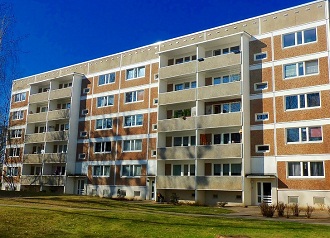Residential Lease Extensions: A How-to Guide
Residential Lease Extensions: A How-to Guide

This note briefly summarises the steps and timeframe for a residential tenant to extend the long lease of their flat or maisonette under the Leasehold Reform, Housing and Urban Development Act 1993. For tenants, extending a lease comes with the benefit of reducing ground rent to nil (known as a peppercorn rent) and acquiring an additional 90 years on top of the remaining lease term, which will substantially increase the value of the leasehold title. Landlords are obliged to offer lease extensions to tenants who follow the statutory procedure, but the tenant must pay a premium for the extension, and they must also cover the landlord’s reasonable professional costs.
1. Instructing solicitors
The first step is to instruct a solicitor who will check that you are entitled to extend your lease. You will then require a valuation surveyor to undertake an inspection of the flat to calculate the premium you must pay the landlord for the lease extension. The surveyor will record this in a formal valuation report. It is important to start the extension process before the remaining term of the existing lease falls below 80 years, as an increased premium will be payable to extend a lease with under 80 years left to run.
2. The tenant’s notice
Using the surveyor’s report, your solicitor will then draft and serve a statutory notice on the landlord, proposing the terms for the new lease. Your solicitor will also register the notice at the Land Registry to ensure that any potential buyer of the property is aware that you have an ongoing application to extend your lease.
3. The landlord’s counter-notice
The landlord then has two months to prepare their own valuation survey and serve a counter-notice. The counter-notice will indicate the landlord’s own proposals for the premium payable and other lease terms. The landlord is entitled to request that you pay a deposit to evidence your genuine commitment to see the process through to completion. The deposit is usually 10% of the premium you proposed in your notice. You will also be responsible for the landlord’s reasonable legal and surveying costs incurred in granting the lease extension.
4. Negotiating
The parties’ respective surveyors then have six months from the date of the landlord’s counter-notice to agree the terms for the new lease, including the premium payable for the extension.
5. Drafting the new lease
Once the terms for the new lease are agreed, the parties have four months to complete the lease itself. Ordinarily the landlord’s solicitor will produce the first draft of the lease, and the parties’ solicitors will fine-tune it via negotiation. Once the lease is completed, it will be registered at the Land Registry showing the new, extended term.
6. If terms cannot be agreed
On the rare occasions where the parties cannot agree the terms of the new lease within the six-month window mentioned at step 4, the matter must be referred to the First-tier Property Tribunal (“FTT”). The FTT will then decide the premium that you must pay for the lease extension based on evidence provided by both parties. The FTT will also determine a premium if the landlord fails to respond to your notice within the two-month period mentioned at step 3.
7. If your landlord is unknown or missing
Where your landlord is missing or unknown, the process is slightly different. If you have taken reasonable steps to track down the landlord but they cannot be located, then instead of serving the initial notice, you must instead apply to the County Court for a vesting order. Once you obtain a vesting order, the matter will be referred to the FTT to determine the premium figure, which you will pay into the court instead.
Contact IBB Solicitors’ property disputes and lease extension team today
We at IBB are experienced in handling lease extensions on behalf of both landlords and tenants, and we strive to ensure that our clients secure the best possible lease terms as quickly and smoothly as possible. If you wish to extend your lease or if you are a landlord and you have received a notice seeking an extension from your tenant, please contact Sam Fellows in our Real Estate Dispute Resolution team on 01895 207250 or email sam.fellows@ibblaw.co.uk.
